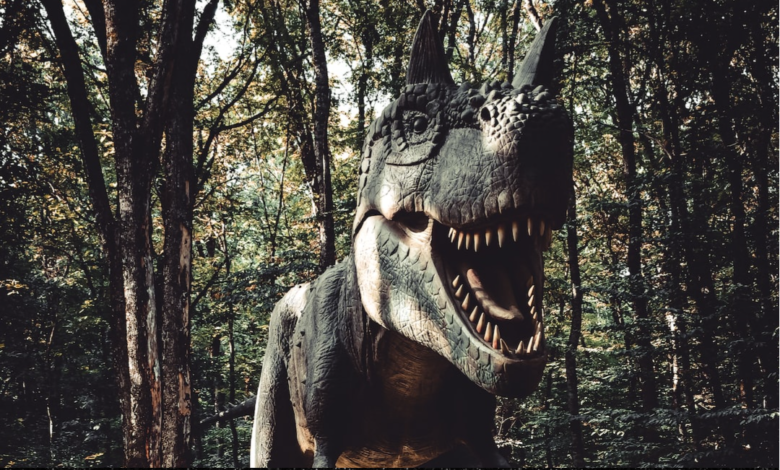what does islam say about dinosaurs?

Exploring Islam’s Perspective on Dinosaurs: A Blend of Faith and Science
The relationship between religion and science has been a topic of contemplation for centuries. One area where this interplay has been particularly intriguing is the way various faiths address the existence of dinosaurs. Islam, a religion that emphasizes the harmony between faith and knowledge, offers its own unique perspective on these ancient creatures.
The Islamic Approach to Science and Knowledge
Islam has a long history of encouraging the pursuit of knowledge and science. The religion’s holy book, the Quran, often calls on believers to observe the signs of God’s creation in the natural world. This inclination towards understanding the universe aligns with the Islamic belief that seeking knowledge is a form of worship.
The Quranic verses and Hadith (sayings of the Prophet Muhammad) that encourage scientific inquiry and observation have led to a rich tradition of Islamic contributions to various scientific fields. This mindset also extends to the study of dinosaurs and prehistoric life.
Dinosaurs and the Quranic Narrative
While the Quran does not explicitly mention dinosaurs, it does emphasize the concept of God’s creation and the diversity of life on Earth. Several verses highlight the complexity of creation and encourage believers to ponder over the world around them. For instance, the Quran says in Surah Al-Ankabut (29:20), “Do they not reflect upon themselves? Allah created the heavens and the earth and everything between them in Truth and for an appointed term. Yet many people deny they will meet their Lord.”
Islamic scholars and theologians often interpret these verses as an invitation to explore the natural world, including ancient life forms like dinosaurs. The Quranic emphasis on contemplation and understanding can be seen as an encouragement to engage with scientific discoveries, as long as they are in harmony with Islamic principles.
Islamic Scholars and Dinosaurs
Prominent Islamic scholars have expressed diverse opinions about the existence of dinosaurs and their place within the Islamic worldview. Many contemporary scholars have no theological objections to accepting the existence of dinosaurs based on scientific evidence. They view dinosaurs as part of God’s intricate creation that unfolded over millions of years.
Islamic scholars also recognize the importance of reconciling scientific discoveries with the tenets of faith. They often emphasize that Islam does not dictate a specific age of the Earth or deny the possibility of extinct species like dinosaurs. Instead, they emphasize the importance of maintaining the balance between faith and reason.
Harmonizing Faith and Science
The Islamic perspective on dinosaurs reflects a broader approach to the relationship between religion and science. Muslims are encouraged to explore the natural world and make use of their intellect to understand it. This approach is evident in the vast contributions made by Islamic scholars to various scientific fields throughout history.
In the 21st century, as advancements in paleontology and related sciences shed light on the existence of dinosaurs and their role in Earth’s history, many Muslims find no contradiction between these discoveries and their faith. Instead, they see the revelations of science as an opportunity to marvel at the complexity of God’s creation.
Conclusion
The Islamic perspective on dinosaurs underscores the religion’s commitment to knowledge and understanding. Rather than perceiving faith and science as conflicting domains, Islam encourages believers to seek harmony between the two. The existence of dinosaurs, as supported by scientific evidence, aligns with the Quranic emphasis on reflecting upon creation and gaining insights into the world around us. In this way, Islam continues to offer a framework that accommodates both spiritual beliefs and the pursuit of scientific knowledge.
Does Islam mention dinosaurs in its holy texts?
No, dinosaurs are not explicitly mentioned in the Quran or Hadith (sayings of the Prophet Muhammad). The concept of dinosaurs as understood by modern science did not exist during the time these texts were revealed.
Does the absence of dinosaur references in Islamic texts mean they contradict science?
Islam encourages the pursuit of knowledge and understanding of the natural world. The absence of specific references to dinosaurs does not contradict scientific discoveries, as the Quran is not a science textbook but a spiritual and moral guide.
How do Muslims reconcile scientific evidence of dinosaurs with their faith?
Many Muslims view scientific discoveries, including those related to dinosaurs, as manifestations of Allah’s creative power. They believe that Islam and science can coexist, as scientific understanding deepens appreciation for the wonders of creation.
Are there any Islamic teachings that could be related to dinosaurs?
The Quran emphasizes the diversity of Allah’s creation and the signs in the natural world. Some verses may indirectly hint at the existence of creatures that lived long before humans, but these are open to interpretation.
Could dinosaurs have existed during the time of Prophet Adam or other prophets?
Islam teaches that Adam was the first human, but the concept of dinosaurs predates human existence by millions of years according to scientific evidence. Therefore, there is no overlap between the two.
Do Islamic scholars discuss dinosaurs?
Islamic scholars often focus on matters of theology, ethics, and jurisprudence. While some may discuss scientific discoveries, dinosaurs are not typically a central topic of scholarly discourse.






